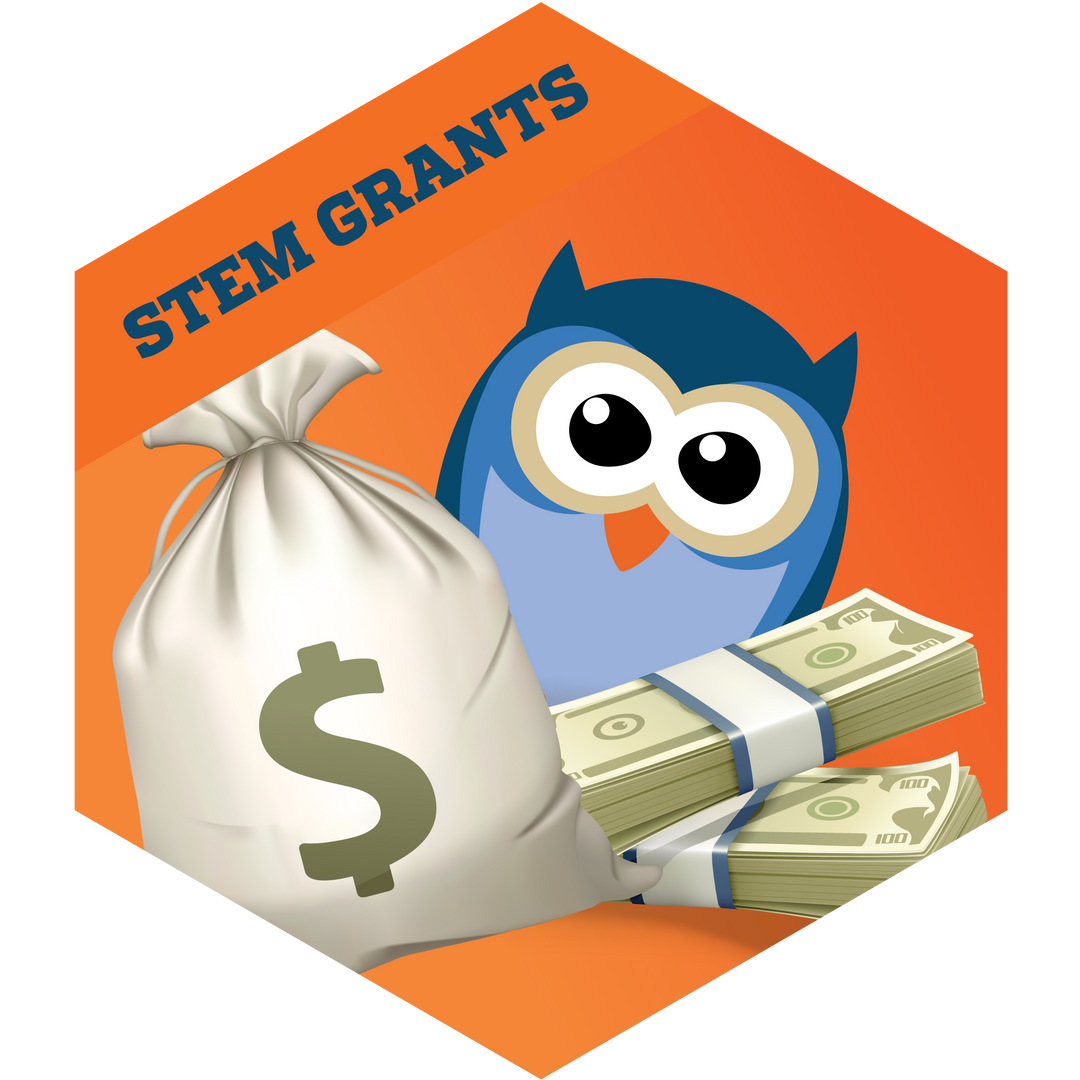STEM Grant Seeking and Writing Resources
Finding funding sources is just part of the grant process. Preparing and writing a stellar proposal is another part! Below are some tips to guide you through the grant-writing process.
Be sure to add 12 Quick Steps to Writing Winning Classroom Grants to your cart! This award-winning resource will get you started on your grant-writing journey!
Check out the Candid Foundation Directory! You can search for grants and other funding opportunities for free at many locations. Check here to see if there is a library or other location with a subscription with free access.
New Webinar Series Coming Soon!
STEMfinity and BK International Education Consultancy Present:
Prospecting and Proposal Writing for STEM Educators - A webinar series
STEMfinity and the esteemed BK International Education Consultancy are partnering to produce a series of webinars to serve as resources for grant seeing and writing in the STEM education community. Whether you are a novice or seasoned in drafting proposals, this series will help you elevate your skills to submit winning proposals and advance STEM learning for students everywhere.
Webinars will be available for live participation and will then be archived and available here in late fall 2023. If you are interested in participating, please fill out this interest form (COMING SOON!) and we will be sure to let you know when sign ups are available!
Before You Start Searching
Start with a Program/Project of Funding First?
It is helpful to have a general idea of the need you are addressing, as well as a program/project plan for how you will meet those objectives before searching for funding.
Consider if you want to find funding that supports your plan for how to meet your needs or if you want to find funding, and will fashion a plan around the funding requirements to meet your stated needs. Both have pros and cons.
Get Acquainted with Different Funding Sources
Do you want a specific grant or are you open to approaching foundations for funding that is not advertised?
What is the scope of your program/project?
Is national, state, county, city or private funding more suitable?
Before You Start Writing
Before you start writing, there are things you need to do to ensure you write a winning proposal. Take the time to narrow your focus and develop a crystal clear objective, gather data to support your needs statement, and pull together organizational and community support. The time spent preparing these components will make the writing process go much smoother and result in a well thought out, convincing proposal.
Different grants will require different supporting information, but the following categories are helpful for small grants to purchase materials as well as large grants to fund and implement large programs. The degree and depth of information will be dictated by the scope and requirements of your individual grant.
Needs Assessment Statement
An explicit and compelling needs assessment is the very foundation of a successful grant proposal. This section gives you the opportunity to explain why your program/material resources are needed for the target group/population with whom you will be working. You demonstrate you have identified, understand, and have prioritized a particular need that you are qualified to address. A well-written needs assessment serves as the centering narrative from which you will tie your other application sections, using the needs section to determine your goals, methods, materials, and other minor objectives.
This is the section of a grant you provide data to substantiate the needs you have presented. You can also include a human-interest story to make it more personal.
Clearly identifying and determining the needs you want to meet early in the process will help you prepare a clear, targeted proposal.
Program Design
This is where you get to talk about your program or project! This is the fun part! Include details about your plans to address the need you identified earlier, who will carry out the plan and how. Provide enough detail that potential funders can envision how the program will be carried out and to demonstrate your readiness to implement it.
What is the scope of your program/project?
This section will be determined by the scope of the program/project you are proposing. Here is where you explain what, if any, support you need from your organization or other community organizations in order to successfully meet your stated objectives. As you designed your program/plan, where did you identify areas of support? Do you need support from your principal or district? Do you need space dedicated to your program, and if so, what arrangements have you made with those providing the space? Does this grant only cover part of the cost of your program? If so, be sure to include information about other funding sources you have secured or are in the process of getting, community partnerships, etc. If you are writing a grant for a piece of equipment, you might just need to include information as to where this will be housed and if any consumable materials will be purchased in the future, and what agreements you have in place to address these concerns, etc.
Logic Model
Utilize a logic model to outline and demonstrate the resources, activities, output and outcomes you are planning on. This demonstrates how you expect this new program/project you are proposing will lead to particular outcomes.
Objectives and Deliverables
In this section you will list what you will accomplish and the steps you will take to do so. Objectives should be measurable, and you will need to include how you plan to measure and assess your program’s performance against these objectives.
Budget
The budget, though sometimes tedious, is an excellent way to demonstrate how carefully and thoroughly you have planned your program. Consider all the expenses related to this program, including materials, products (and the cost to ship them to program locations!), costs of consumables, staff costs, travel, room rentals, equipment rentals, etc. The more thorough and detailed your budget, the better you demonstrate your preparedness to implement the program flawlessly and to obtain results.



